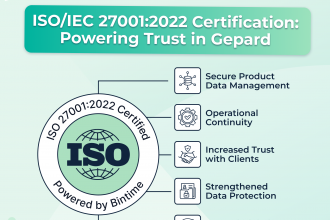What Is Cloud-Based eCommerce Platform?
A cloud-based
eCommerce platform is an online software solution that provides businesses with the infrastructure and tools to build, manage, and operate their online stores.
It leverages cloud computing technology to host and deliver the eCommerce platform’s functionalities and resources over the Internet. Cloud-based eCommerce solutions offer scalability, flexibility, and accessibility, allowing businesses to easily expand their operations, handle increased traffic, and adapt to changing market demands.
They typically include features such as website design and customization, product catalog management, secure payment processing, order and inventory management, customer analytics, and integrations with third-party applications.
Cloud eCommerce Platforms Examples
There are several examples of cloud-based eCommerce solutions available in the market, each offering a range of features and functionalities. Here are a few notable examples:
- Shopify. Shopify is a popular cloud based eCommerce platform that provides businesses with a comprehensive suite of tools to create and manage their online stores. It offers features such as website design, product management, secure payment processing, and integrations with various third-party applications.
- WooCommerce. WooCommerce is a flexible and customizable eCommerce platform built on WordPress. It offers a range of plugins and themes to create and manage online stores. It provides features such as product management, inventory tracking, payment gateways, and shipping options.
- Magento Commerce. Magento Commerce is a robust cloud-based eCommerce platform that caters to businesses of all sizes. It offers advanced features for product management, order processing, customer segmentation, marketing automation, and extensive integrations.
- BigCommerce. BigCommerce is a scalable cloud-based eCommerce platform that provides businesses with a wide range of features to create and manage online stores. It offers features such as customizable templates, product management, multi-channel selling, and built-in marketing tools.
Benefits Of Cloud eCommerce Platforms
Cloud eCommerce solutions offer several benefits for businesses:
Scalability
Cloud platforms provide scalability, allowing businesses to easily handle fluctuating levels of website traffic and accommodate growth without the need for significant infrastructure investments. Resources can be scaled up or down based on demand, ensuring optimal performance and customer experience.
Flexibility and Accessibility
Cloud-based solutions offer flexibility, enabling businesses to access and manage their online stores from anywhere with an Internet connection. This flexibility allows for remote work, easy collaboration, and quick updates or changes to the eCommerce solution.
Cost-Efficiency
Cloud eCommerce platforms eliminate the need for upfront investments in hardware, infrastructure, and software. Instead, businesses pay for the services and resources they utilize on a subscription or pay-as-you-go basis. This cost-effective model lowers initial capital expenditures and reduces ongoing maintenance and operational costs.
Security and Reliability
Cloud solutions typically provide robust security measures, data backup, and disaster recovery systems. This ensures that eCommerce data and transactions are protected from potential threats or system failures. Cloud providers also offer high uptime and reliability, ensuring minimal downtime and uninterrupted operation of the online store.
Integration and Scalable Features
Cloud eCommerce platforms often come with pre-built integrations with popular payment gateways, shipping providers, and other third-party applications. This allows businesses to easily connect their online store with essential services. Additionally, cloud solutions typically provide scalable features and functionalities, enabling businesses to expand their offerings, implement new features, and keep up with evolving customer needs.
Important Features Of Best Cloud eCommerce Platforms
A robust cloud eCommerce platform incorporates essential features to support successful online stores. These features include:
Comprehensive Store Management. It should enable businesses to easily add and update products, monitor stock levels, process orders seamlessly, and manage customer information effectively.
Flexible Customization and Design. It should allow businesses to personalize the appearance of their online stores to reflect their brand identity and create a cohesive customer experience. This includes modifying layouts, colors & fonts, and incorporating custom branding elements.
Seamless Payment and Security. It should offer robust security measures to protect customer data and facilitate safe transactions, inspiring trust and confidence in buyers.
Marketing and SEO Capabilities. Effective eCommerce platforms include marketing features such as search engine optimization (SEO) tools, promotional campaigns, discount codes, and email marketing integration. These features enable businesses to attract and retain customers, drive traffic to their online stores, and increase sales.
Analytics and Reporting. The platform should offer built-in analytics and reporting functionalities to track key performance metrics, understand customer behavior, and gain insights into the effectiveness of marketing strategies. Accessible and comprehensive analytics empowers businesses to make data-driven decisions and optimize their eCommerce operations.
How To Choose The Best Cloud eCommerce Platform For Your Business
Choosing the best cloud eCommerce platform for your business requires careful consideration. Start by assessing your specific business needs, scalability requirements, budget, and desired features. Conduct thorough research, comparing solutions based on factors like ease of use, customization options, integrations, security measures, customer support, and pricing models.
Consider reading user reviews and seeking recommendations from other businesses in your industry. Request demos or trial periods to test the platforms firsthand and evaluate their user experience. Ultimately, select a solution that aligns with your business objectives, offers the necessary features and scalability, and provides reliable support to help you build and manage a successful online store.

